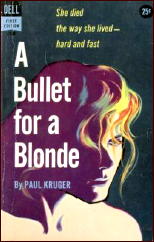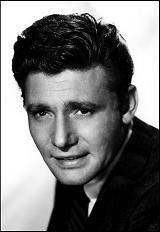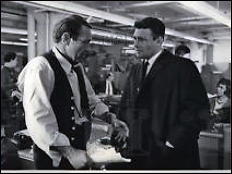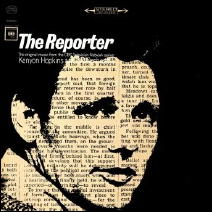Sat 16 Apr 2016
THE MAD MAGICIAN. Columbia Pictures, 1954. Vincent Price, Mary Murphy, Eva Gabor, John Emery, Donald Randolph, Lenita Lane, Patrick O’Neal, Jay Novello. Story & screenplay: Crane Wilbur. Director: John Brahm.
If stealing ideas and pieces and pieces of various scenes from other movies were a crime, The Mad Magician would seriously be on the verge of being sent up for a ten-year stretch. Crane Wilbur, who wrote the story and screenplay also did the screenplay for House of Wax, which came out the year before, but for Warner Brothers, and probably not so coincidentally also starred Vincent Price in the leading role.
Both films were also in 3-D, though this one is in black-and-white, while House of Wax was in color. In both films the theme is that of revenge. In both cases it is Vincent Price’s character who is wronged, but getting even is where the fun comes in, at least for the viewer, if not his victims.
Director John Brahm, among other films, did both The Lodger (1944) and Hangover Square (1945), two films which take place in roughly the same time period as this one, or the turn of the last century, and one scene in The Mad Magician, in which Price’s character rents a room as part of the plot he is perpetrating, is more than strongly reminiscent of a similar scene in The Lodger.
As the fledgling magician Gallico the Great, Price’s character is taken advantage of twofold, first by the owner of his contract that says that all the tricks Price creates belong to him, then by a rival magician, The Great Rinaldi, who then appropriates them to use in his own act.
The new science of fingerprints has a great deal to do with solving the case (murder), which is investigated by Lt. Bruce (Patrick O’Neal), the boy friend of Karen Lee (Mary Murphy), Gallico’s very comely assistant, along with the mystery writer wife of the couple who own the house in which Gallico rented the room.
It’s a complicated story, and maybe it doesn’t make a lot of sense, but where this movie goes off in another direction from the others I’ve mentioned, is its arch sense of humor and fun behind the mayhem. I wish they’d showed the audience how the “Lady and Buzzsaw” trick in real time, though. The “Crematorium” is just as deadly, one assumes, but if they’d wanted to have made a sequel, Ã la all those Freddy movies, I really think they could have.



